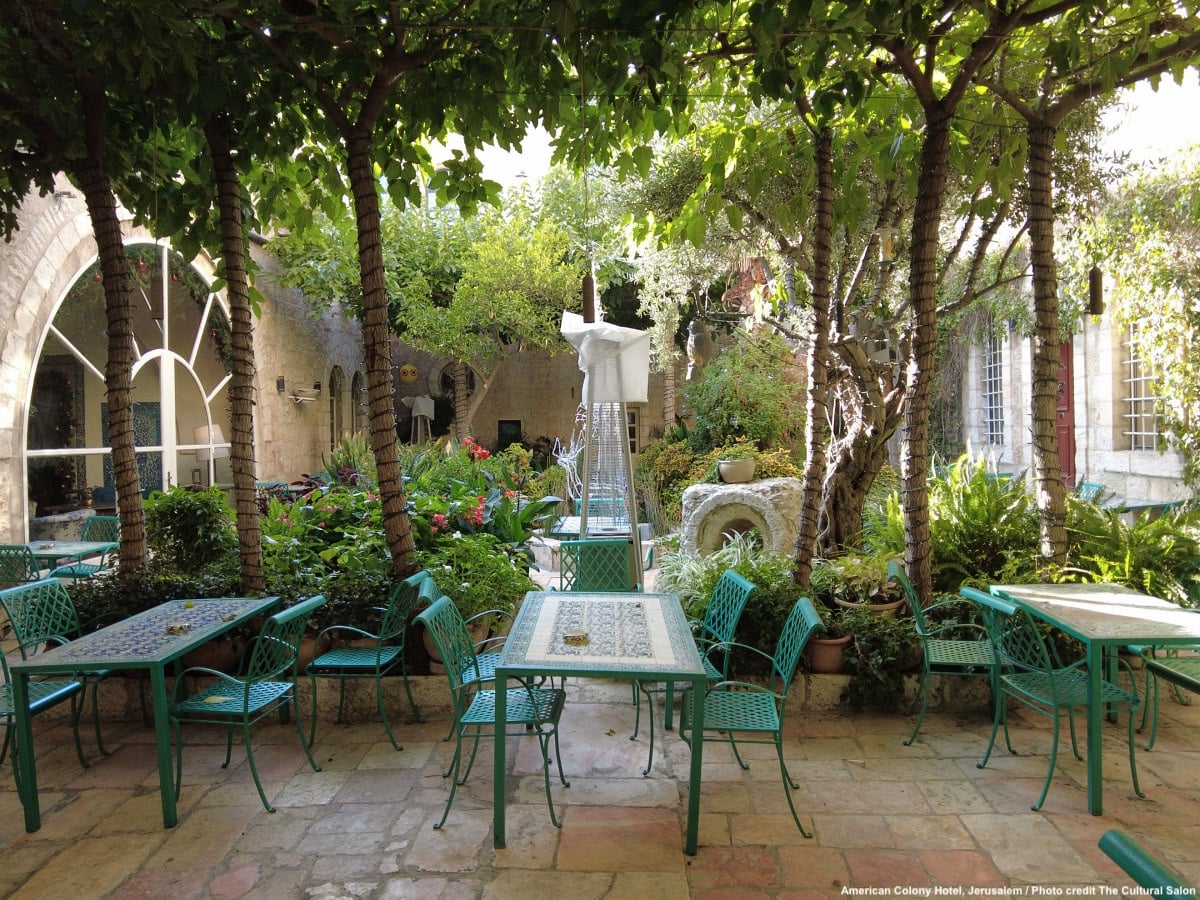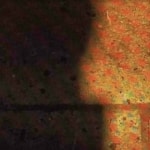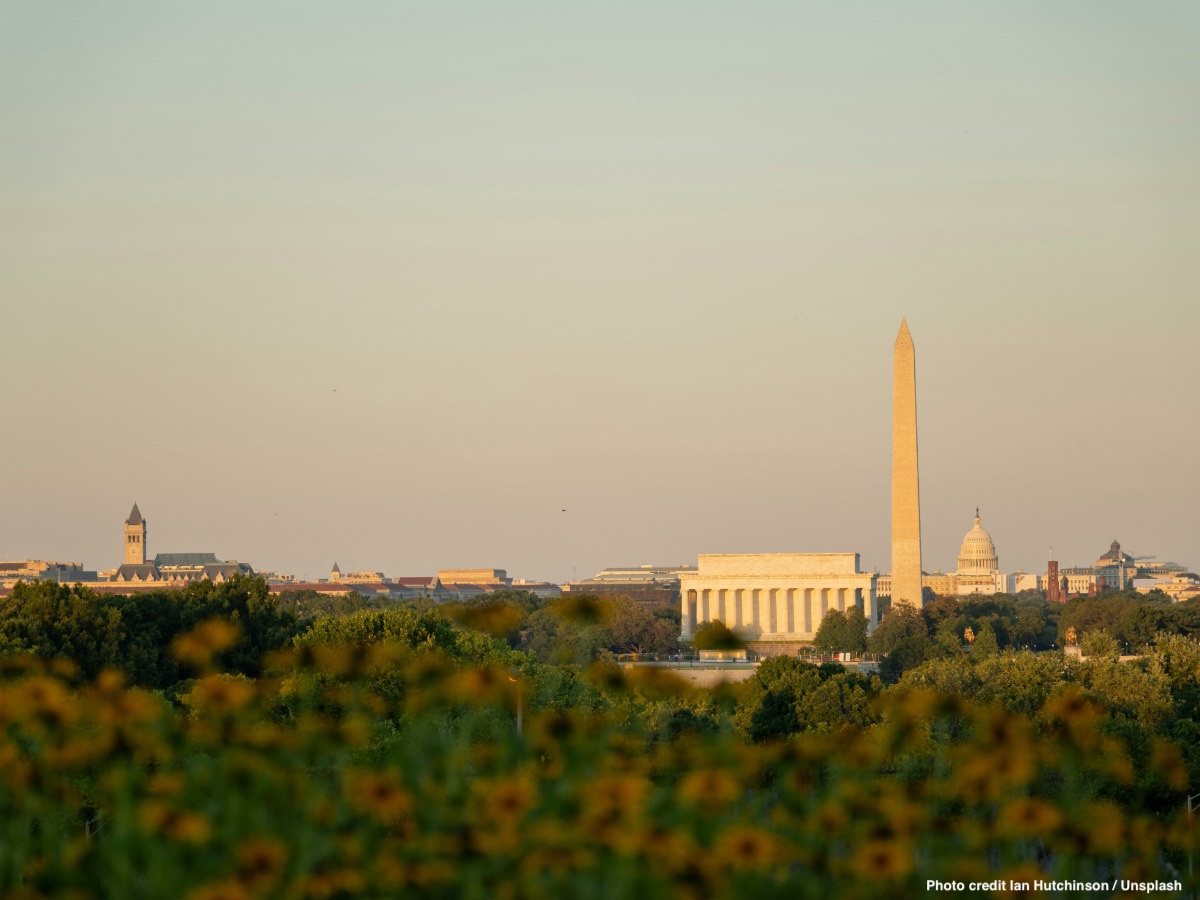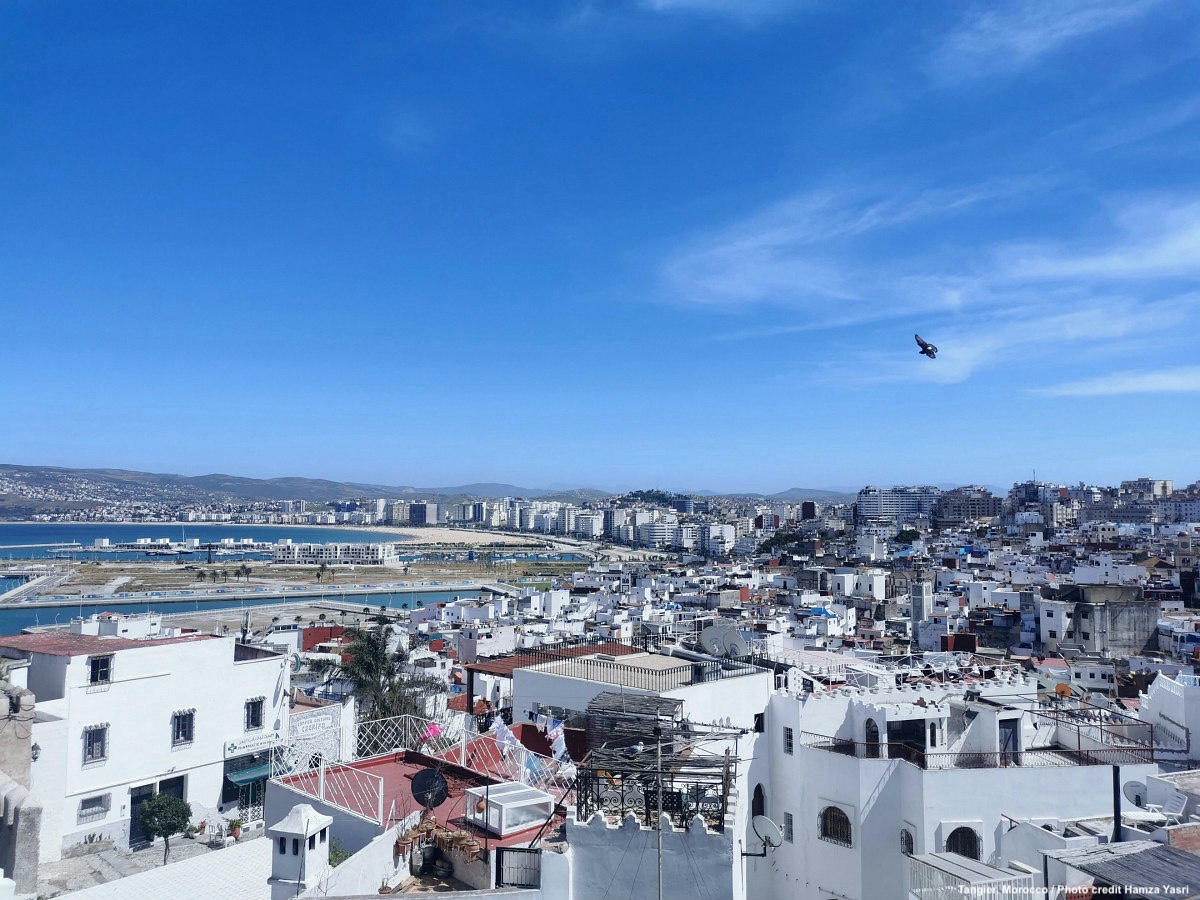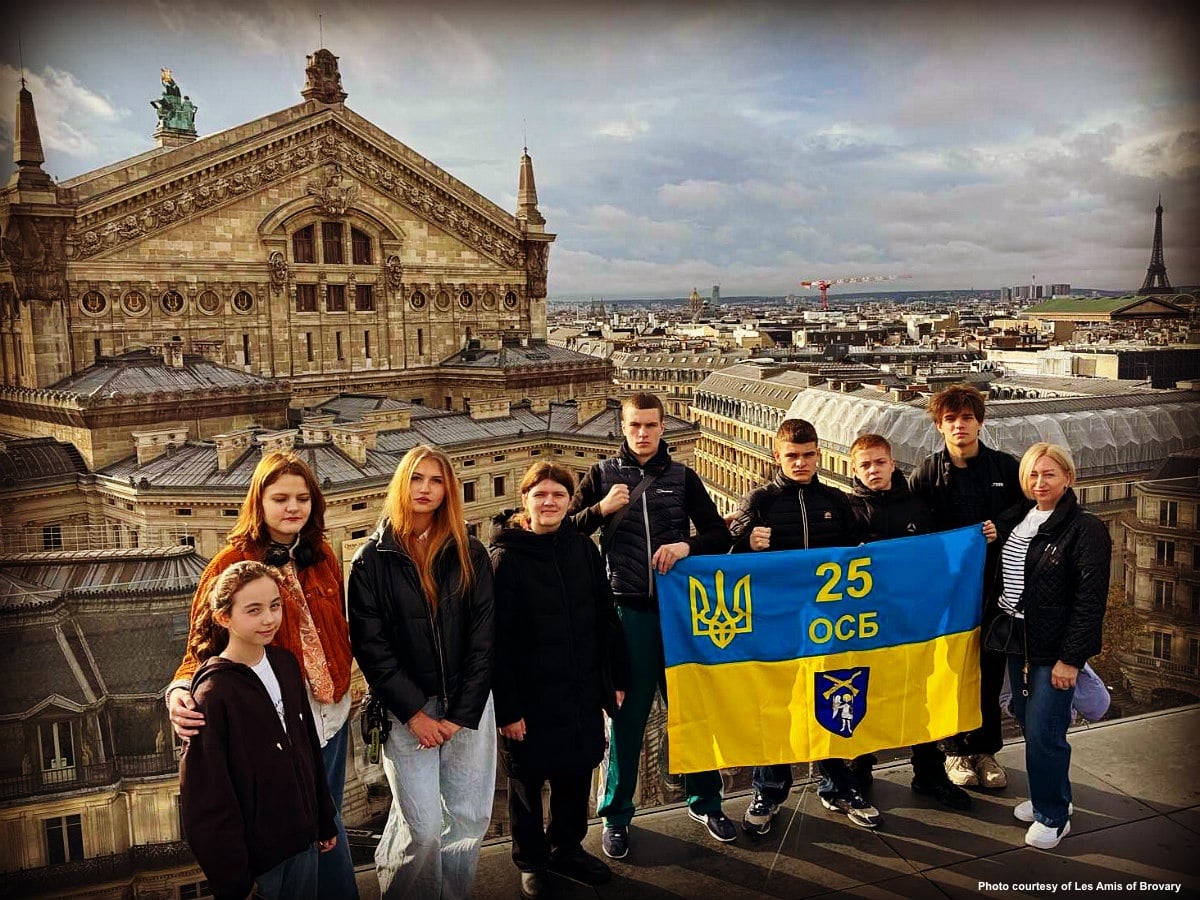Listen to the audio version of this article (generated by AI).
It’s the start of the Christmas season in Jerusalem, and I’m watching a crew of Palestinians adorn a luxurious and beloved building with tinsel, trees, and sparkly decorations.
The American Colony Hotel, a quiet sanctuary of understated opulence, is the destination of choice for journalists, diplomats, writers, artists, and other Western travelers who comprise around 85% of their overnight guests.
Christian observance at the American Colony Hotel is purely cultural. Yet, its origins go back to the specific Christian beliefs of its Swedish-American founders, Anna and Horatio Spafford, who came to the Holy Land at the turn of the nineteenth century.
In a succession of unimaginably tragic events, the Spaffords saw their real estate empire destroyed in the Great Fire of Chicago in 1871, and two years later, they lost their four children in a terrible shipwreck. Horatio Spafford and his wife, Anna, were deep in grief, yet this was the moment that they found themselves unwelcome in their Presbyterian community. Instead of finding comfort, they were shunned because many feared they were recipients of divine retribution for private sins.
In 1881, they arrived in Palestine, then under Ottoman rule, to establish their own home-based prayer community. All of them fervently believed in the imminent second coming of Christ. The community first settled within the Old City walls in the Muslim Quarter, learning Arabic and forming relationships with local Ottoman leaders, equally with the poor, embracing Christian, Muslim, and Jewish Palestinian neighbors. Bertha, the Spaffords’ daughter, documented their efforts to integrate, including adopting a Turkish-Jewish boy named Jacob Eliahu.
By the late 1890s, the community moved into the vacant Ottoman Pasha’s palace on his death, transforming it into a hostel for pilgrims, and this is where the American Colony is now serving me tea and cakes on the terrace.
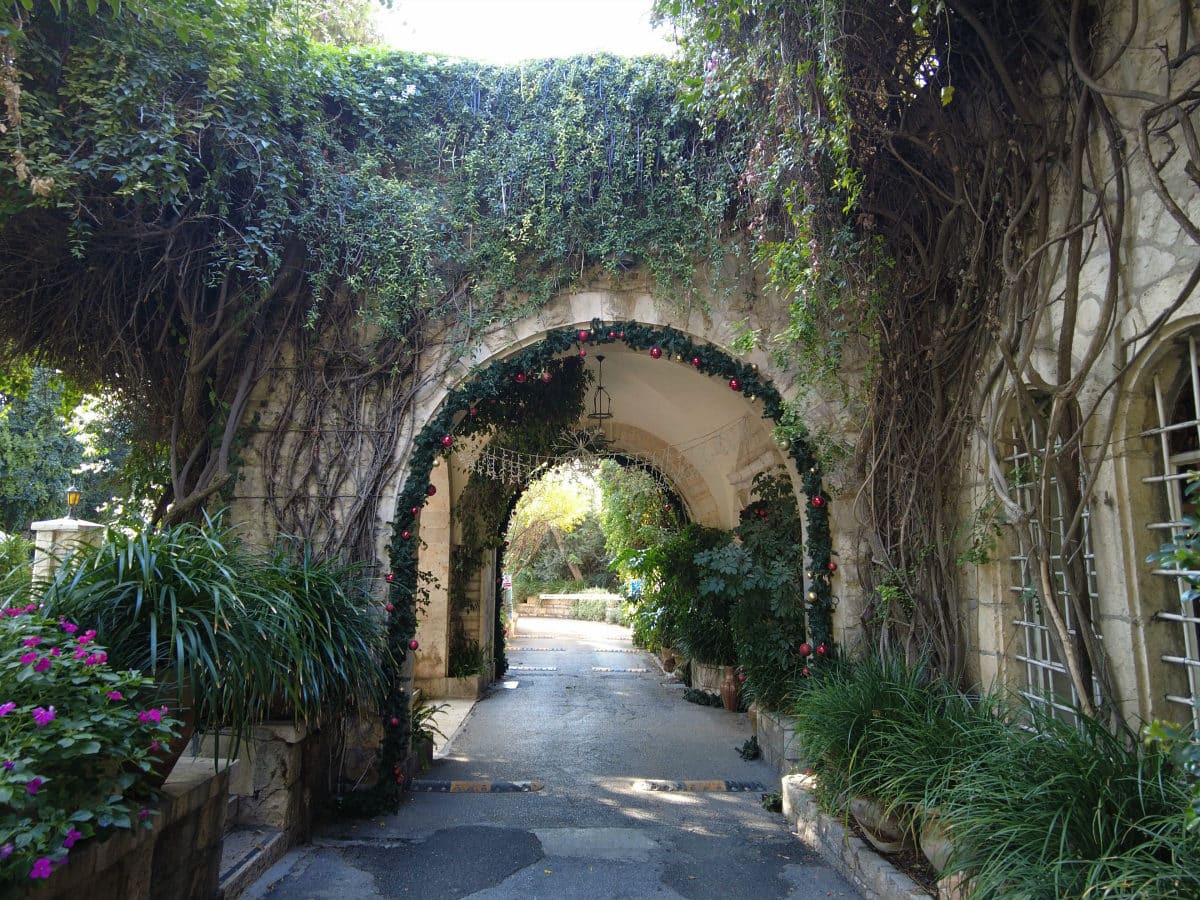
The old community home in the Muslim Quarter became a school for boys and girls from affluent families, including European diplomats, and a religious and ethnic mix of Muslim, Armenian, Greek, Russian, Ethiopian, and Ashkenazi youth. It also hosted farming cooperatives, artisan workshops, and a photography studio led by Elijah Meyers, who documented a transforming Jerusalem in the American Colony in Jerusalem archive. It includes photographs, draft manuscripts, letters, postcards, telegrams, diaries or journals, now at the Library of Congress in the US. When the British assumed control in 1917, the colony became a conduit for relief funds. Today, this building is the philanthropic Spafford Children’s Center.
The devastating experience of being shunned that the Spaffords endured formed the ethos of radical inclusiveness, paving the way for the culture at the American Colony Hotel, which still exists today in the divided streets of Sheikh Jarrah.
***
As perhaps the last remaining inclusive space in Jerusalem, the American Colony Hotel welcomes all who can afford it. Its devotion to inclusion subtly echoes on with a pair of coffee cups shared on the terrace between people with differing family trees, but the desire to sit together privately. This is one of the only spaces where this can still happen in public, without undue drama or attention, however tenuous this feels here today.
Yet at the other end of the socio-economic spectrum, the Spaffords’ legacy is still inclusive through the Spafford Children’s Center, which provides healthcare to disadvantaged women and children in East Jerusalem, and offers psycho-social therapy alongside a library of books, music, and the traditional Palestinian dance, dabke, at its centre, which is a beneficiary of the hotel. In Bethany, the Spafford Children’s Centre opened a new second space; a well-equipped medical clinic serving the West Bank.
Descendants of the original Swedish-American founders remain on the board of both the hotel and its philanthropic beneficiaries. A Swiss hotel management company runs the day-to-day operations, and the staff are primarily Palestinians, with around 80% from one of the local Christian denominations.
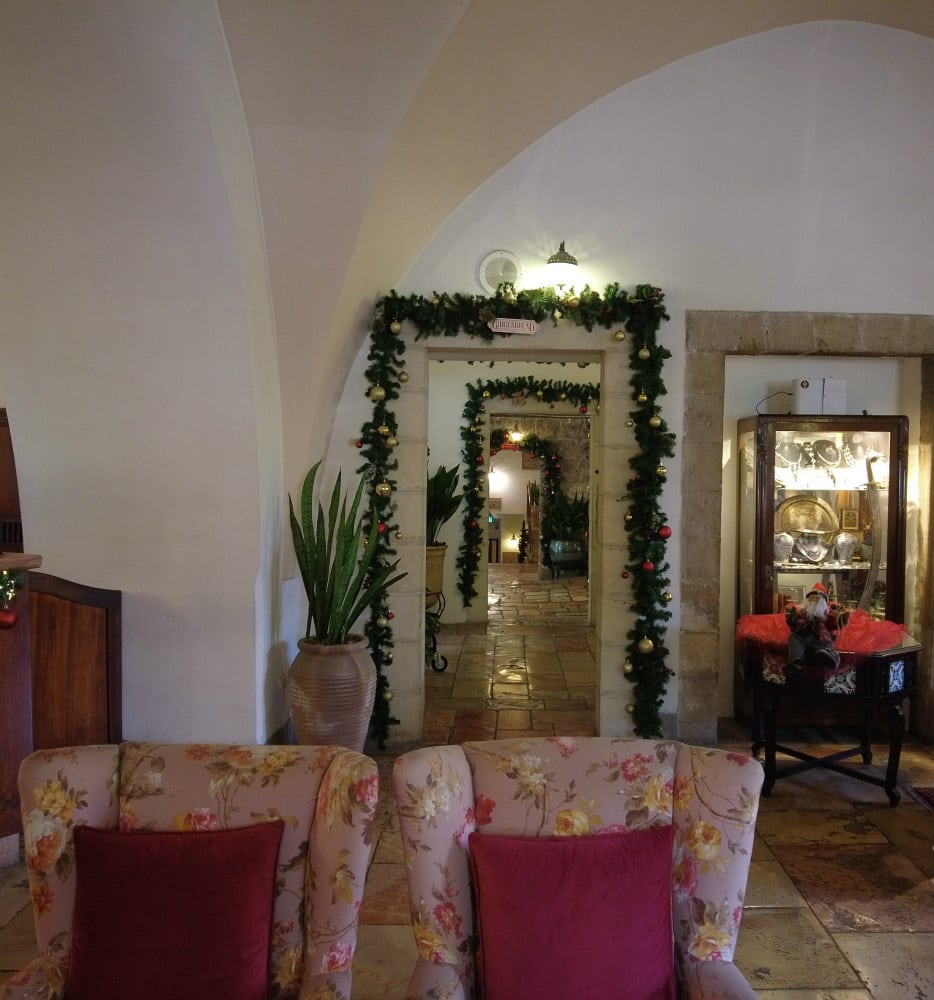
I visited the hotel on a hot Tuesday in November, the sunshine warming my back as Jerusalem recorded its highest November temperatures since records began. As I sipped a cup of tea in their courtyard, surrounded by shrubs in peak condition, the fragrance of late-November jasmine wafted. I was here to meet Peter Sulski, the celebrated American violist and conductor, who has been a guest at the hotel twice a year for the past thirty years. He leads classical music rehearsals and concerts for various local organizations, including Barenboim-Said For Music and Al-Kamandjati.
“As a frequent guest of the American Colony Hotel for the last 30 years, I can easily say that it’s my favorite place in the world to be. The staff, service, and architecture are second to none,” says Sulski, smiling in the dappled sunshine that spills in through the leafy canopy, his voice relaxed in this safe and beautiful place.
He’s seen the hotel’s clientele evolve over the years, from primarily international visitors to the current fashion for around 50% of day visitors being Jewish Israelis. Before the Covid lockdown in 2020, the hotel attracted a more balanced mix of international visitors, Jewish Israelis, and Palestinian Israelis. Following the lockdowns and then the war in Gaza, international tourism has declined. At the same time, featured articles in the Jewish-Israeli press have boosted domestic tourism, leading to a significant increase in Jewish Israeli guests. The hotel remains a popular destination for American Jews, especially during the Christmas season, for a little fix of Yuletide greetings without setting foot outside the border, and with a remit for peaceful coexistence.
Sulski was at the American Colony to rehearse a string ensemble for the US embassy, which was hosting a concert featuring an ensemble of Jerusalem Palestinian musicians, being paid a generous salary for their classical chops. The repertoire included Barber’s Adagio for Strings, alongside orchestral covers of Guns n’ Roses and Elvis. The hotel’s Pasha Room is a beautiful space with a soft resonance thanks to the combination of soft furnishings and the classic Palestinian-colored floor tiles that pattern this grand room. The strings spilled out from the open door into the stairway as I ascended, an elegant array of pastries and hot beverages arranged on a white tablecloth outside the room, to sustain the musicians during their break. It was truly heartening to see this tranquil setting amid the tension outside the hotel. The sound of Sulski’s vision creates such a strong sense of harmony, sustained over 30 years of service to Palestinians.
I’d traveled here from the West Bank, my personal ID allowing me to move from Qalandiya to Sheikh Jarrah by bus. It’s an unpredictable commute, as checkpoints are opened and closed on the fly, but this afternoon it only took 24 minutes to get here, an escape from the brutality of the watchtowers and turnstiles that are so close, but from another galaxy to the serenity we are enjoying here this afternoon.
I met another day visitor, a Japanese woman called Mayuko, who is married to a man with a work visa, himself a Japanese-language news reporter. As with most of their expat friends, Mayuko and her husband often go to the American Colony on Friday nights. She explains that they gather here on Friday evenings because of the great location, the space’s elegance, and the staff’s welcoming attitude toward all. They’re able to enjoy time with all their friends, without exception.
A part of the attraction is also that Palestinians benefit financially from their custom, not only the hotel staff, but also the culinary producers and others who supply the hotel. Most importantly, it’s one of the only places in Israel with a significant Palestinian wine cellar, as it’s so hard for Jerusalemites to find Palestinian wines in an Israeli-dominated culinary scene. Palestinian wine producers use rare, artisanal grape varietals that Israeli winemakers can’t access, while younger, modern vineyards are planted in Israel. Palestinian wines rely on ancient vines and heirloom varieties, whereas Israeli wines are planted with European grapes, introduced in the 20th century.
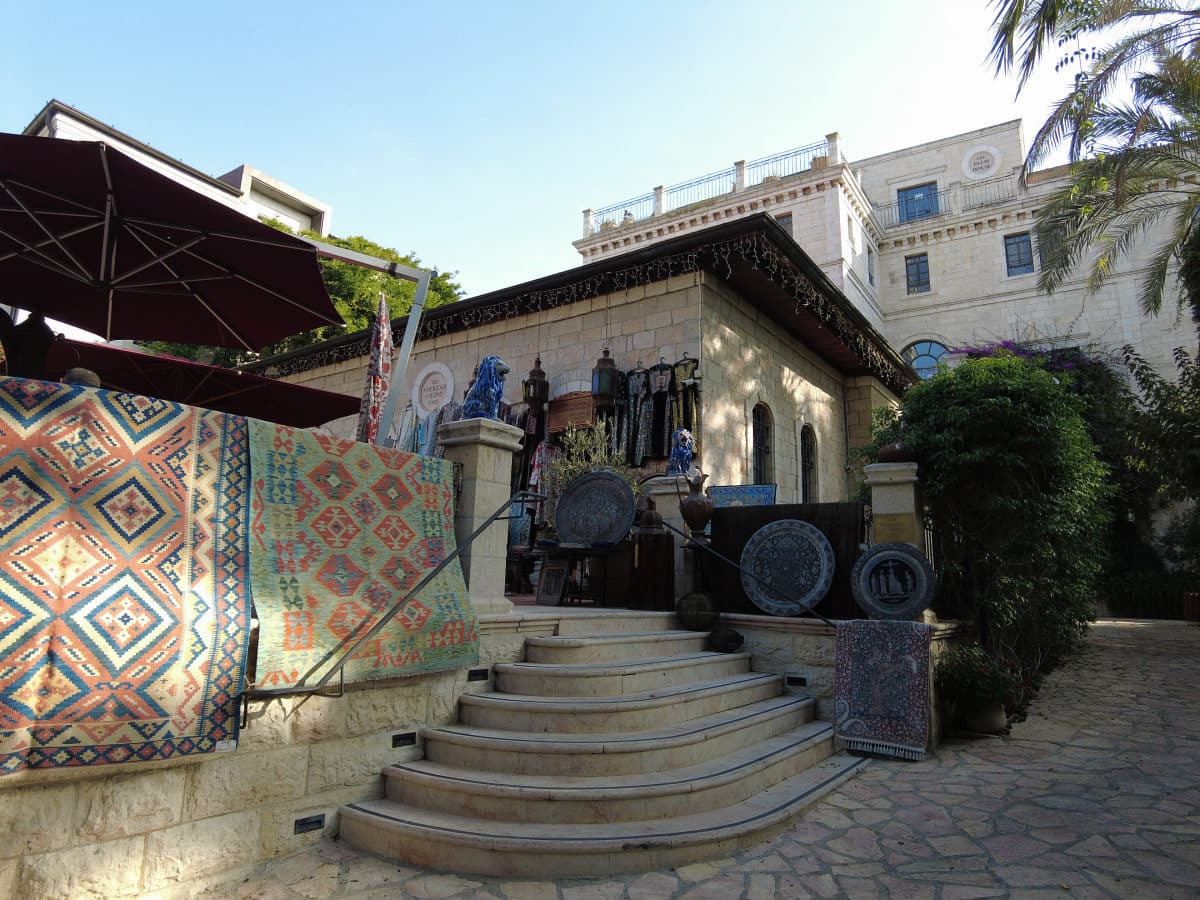
While we were talking, we observed two men who were both loud and demanding. However, the staff remained patient and polite in return. One of the men, who was perhaps in his 80s, was asking very personal questions, including about his waitress’s religion. Given the difficult situation in Jerusalem, this line of conversation was deeply inappropriate, at best. The staff member later explained that they must maintain patience, regardless of how the guests behave, in order to keep the hotel a calm and harmonious place. Perhaps, this commitment to peace may have an unintended effect of bringing confidence to the elderly Israeli customer, whose level of aggressive questioning has some resemblance to the display of bullying and supremacy that can be experienced throughout Jerusalem, but especially on the seam.
Yet what marks the staff is their desire to serve in a place that resonates with diversity. They take the task seriously – to create and maintain this point of peace, which is the mission of the founding family. This deep hospitality and patience extend from the lobby and food service staff to the beautiful gift shop and adjacent bookstore staff. Pearls, gold, and antiques spill out from the welcoming scene, with hand-woven Bedouin rugs hanging above brass platters filled with glass beads, backgammon sets, and postcards from a hundred years ago.
The bookshelves next door are curated by the Muna family, who are celebrated for their knowledge of English, Arabic, and Hebrew books, which are all available to buy. The focus is on vacation-friendly reads – fiction, children’s books, and the like – but the back room has a solid selection of historical and political books in all of these languages, as is appropriate for the diplomat- and journalist-heavy clientele.
Recommended Read: A Bookshop “To Keep People’s Sanity” in East Jerusalem
It’s worth noting that the building next door is Orient House, home to the former Grand Mufti of Jerusalem, who was from the Huseini family, the original owner and builder of the Pasha Palace. Orient House later became the Palestine Liberation Organisation’s headquarters in the 1980s and 1990s. During this time, the Oslo Accords were discussed and developed at the American Colony Hotel, which served as the unofficial base for various American diplomats and local politicians. All of these people had their entourages, which is why it also has a reputation as a base for spies. It was the official base for the Office for the Quartet – the United Nations, the European Union, the United States, and Russia – for five years, also during the Oslo era.
Despite this, Palestinian-Israeli visitors still come to stay here, often to experience a little Western culture, in this British Mandate-infused, multi-layered place of relaxation. It’s a way to avoid the hassle of international travel while enjoying American food and a really good facial at the hotel’s salon. It’s ironic that their Jewish-Israeli counterparts come for an easy access Arabic experience, with knaffeh and maqlouba. Both populations enjoy their differing desires in the peaceful luxury of the American Colony Hotel, in a crossing of perspectives, finding expression in the Western-hosted collage and clash of cultures.
I enjoyed my afternoon, including the coconut cookies that came on the saucer with my tea. The little touches helped create the welcoming warmth, and it’s such a large property that I could easily melt into another room on a pivot.
Jerusalem needs this space more than ever. The hotel is able to defang and diffuse any bitterness. The lasting takeaway of the day was rejuvenating, inspiring, and refreshing for this tired writer as I made my way back to the bus stop and sat in traffic for the hour back to the West Bank. I wish we could all access this little piece of peace, including my friends with West Bank IDs lacking a travel permit, who therefore cannot leave the West Bank.
Around 3 million people live within a short drive of the American Colony Hotel, but with a wall between them and this place. One day, they will no longer be confined to the 5,860 km patch of land behind that wall. Until then, the well-heeled visitors of the American Colony will maintain the peace, waiting to serve everyone with equality.
